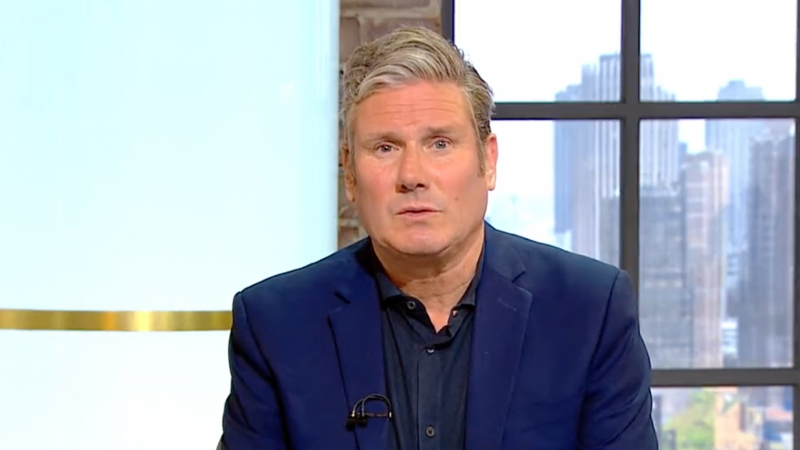
Keir Starmer has said that his job as Labour leader is “to get a Labour government elected”, insisting that he “can’t lose that focus” and saying that the role is different to that of union leaders representing workers in industrial disputes.
In an interview on Jeremy Vine on 5 this morning, the leader of the opposition told viewers that “the single best thing” that he could do for workers who have voted to take industrial action is to deliver a Labour government.
“I completely understand why people are voting to go on strike. I understand why they’re struggling. Wages have been stagnant for the best part of ten years,” the Labour leader said.
“But my job is different. My job is to get a Labour government elected. The single best thing I could do for [workers on strike] is to get a Labour government elected.
“I want to be the Labour Prime Minister. You can’t sit around a cabinet table resolving issues and then walk on to a picket line. They’re different jobs. That is the thing that is going to change millions of lives for the better. I can’t lose that focus.”
His comments follow the announcement that members of the Transport Salaried Staffs’ Association (TSSA) working for Network Rail and nine rail operating companies will take part in a nationwide 24-hour strike on September 26th.
Manuel Cortes, general secretary of the TSSA, has said that he will be standing alongside workers on the picket line in Liverpool, where Labour will be holding its annual party conference between September 25th and 28th. Cortes said he would be “encouraging fellow delegates and MPs to do likewise”.
The Labour-affiliated trade union is urging Transport Secretary Grant Shapps to allow operating companies to go back to the negotiating table. The union has previously rejected the offer of a 2% pay increase, which it called “insulting”.
The TSSA said it remained in talks with National Rail regarding a possible settlement but the general secretary said he had written in recent days to Shapps and bosses at train companies held by the Department for Transport (DfT).
“The reason for the current impasse lies squarely at Shapps’ door and passengers are paying a high price for his incompetence and intransigence,” Cortes said.
“He either sits across the negotiating table with our union or gets out of the way to allow railway bosses to freely negotiate with us, as they have done in the past.”
The government and the DfT have said that ministers are not able to intervene in the talks between rail companies and unions. Cortes said the gap between the TSSA and Network Rail is narrowing but it was not clear whether a deal could be done.
The TSSA is affiliated to the Labour Party, unlike the RMT, and the trade union endorsed Starmer in his successful 2020 bid to become the leader of the party.
Responding to the endorsement from the left-wing union at the time, the now Labour leader said that he would “stand shoulder-to-shoulder with our trade unions to unite our movement and take the fight to the Tories”.
The Labour leadership has received criticism from unions after telling frontbenchers that they “should not be on picket lines” ahead of strikes organised by the National Union of Rail, Maritime and Transport Workers earlier this year.
Responding to criticism from Sharon Graham, general secretary of Labour’s largest affiliate Unite, Starmer said today: “I respect Sharon, she’s doing her job. Her job as a trade union leader is to stick up for her members and to ensure they get the best possible deal.”
The Labour leader said he is “not focused” on the comments made by critics of his stance on industrial disputes but “focused intently on winning the next general election, because we can talk about what we’re going to do… but until we win an election, we won’t do it”.




More from LabourList
‘I was wrong on the doorstep in Gorton and Denton. I, and all of us, need to listen properly’
‘Why solidarity with Ukraine still matters’
‘Ukraine is Europe’s frontier – and Labour must stay resolute in its defence’